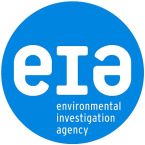
Generally, we as a society trust scientists. We see them as unbiased and smarter than us, so we look to them when we need answers to complex questions. However, we often don’t respond to those answers as well as we should. Part of the problem is that science is ever changing—what was thought to be true last year has now been updated (or reversed) based on new research. When you have different experts on the same subject saying different things, you as a layperson don’t know whom to listen to. But when scientists come together on an issue and vocally push for action, it’s time to listen. The Union of Concerned Scientists is a non-profit organization that was founded in 1969 “by a group of scientists and students at the Massachusetts Institute of Technology to protest the militarization of scientific research and promote science in the public interest.” They’re based in Cambridge, MA, and they are “now an alliance of more than 250,000 citizens and scientists” with members “from all walks of life: parents and businesspeople, biologists and physicists, teachers and students.”
Read the full article →




















